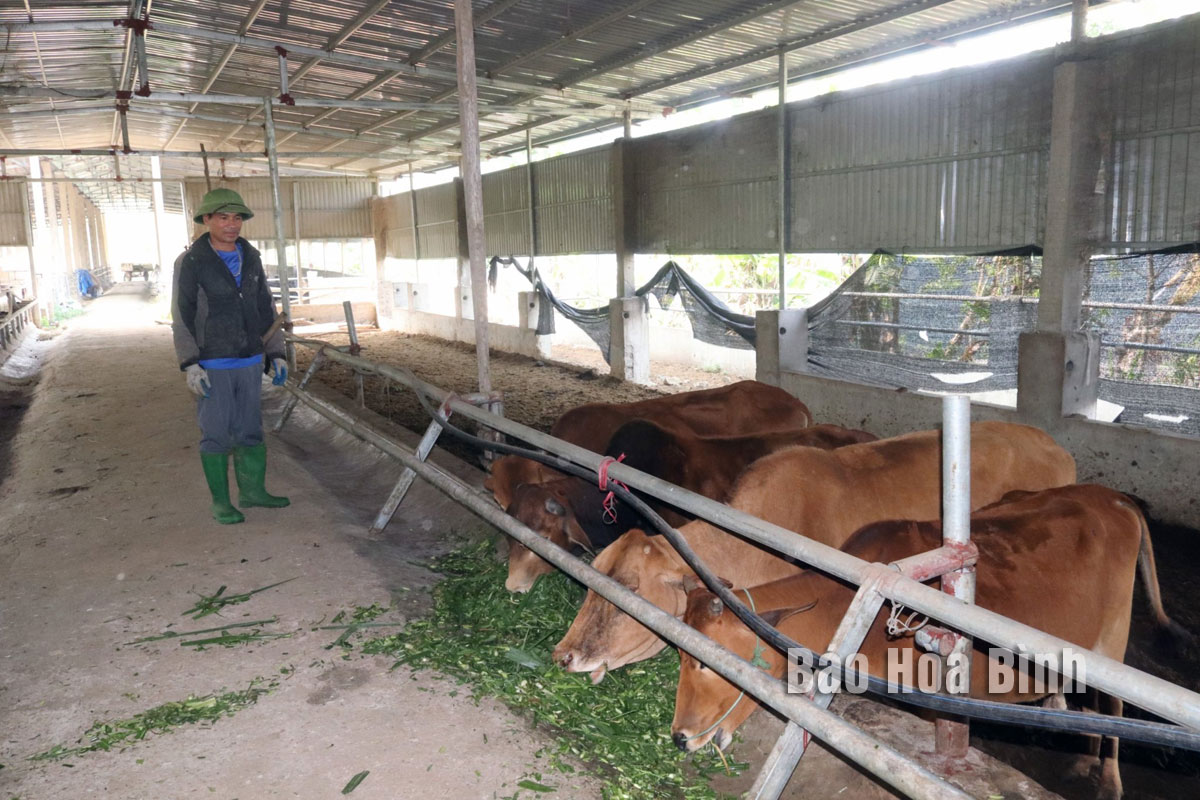



Suong's cattle farm in Dong Chum, Da Bac, generates significant employment opportunities for local labourers.
After years of working across various provinces and cities, Suong made the bold decision to return to the home village to embark on his own entrepreneurial journey. Starting with just one cow, he gradually expanded his venture. In 2012, he boldly borrowed capital to purchase six breeding cows, adopting a free-range, fattening raising method. Additionally, he converted his family's cornfield into a pasture, where he grew elephant grass as fodder for the cattle.
In the initial phase of his startup journey, the farmer encountered various challenges, including harsh weather conditions and animal diseases. Undeterred, he actively visited successful farms and applied the lessons learned to his own farm. Recognising the high economic value and developmental potential of cattle farming in his locality, Suong continued to secure bank loans and collaborated with friends and relatives to expand the scale of his cow breeding operation.
Thanks to effective farming practices, disease prevention measures, and stable herd development, the man currently maintains a herd of over 100 cows, earning an annual income ranging from 250 to 300 million VND (10,303 – 12,363 USD).
Suong said: "Having risen from poverty, I understand the economic challenges facing my community. Relying solely on income from crops like corn and rice helps them make ends meet, but is not enough to get rich.” Therefore, he introduced a cattle farming model within the commune. Families facing financial difficulties receive two mother cows from his farm each for breeding. Once these cows give birth, the profits are evenly shared between the two parties. The households continue to raise the mother cows until they achieve economic stability.
Moreover, Suong's farm provides regular employment for three workers with monthly wages ranging from 5 to 7 million VND and helps generate incomes for dozens of seasonal labourers in the locality.